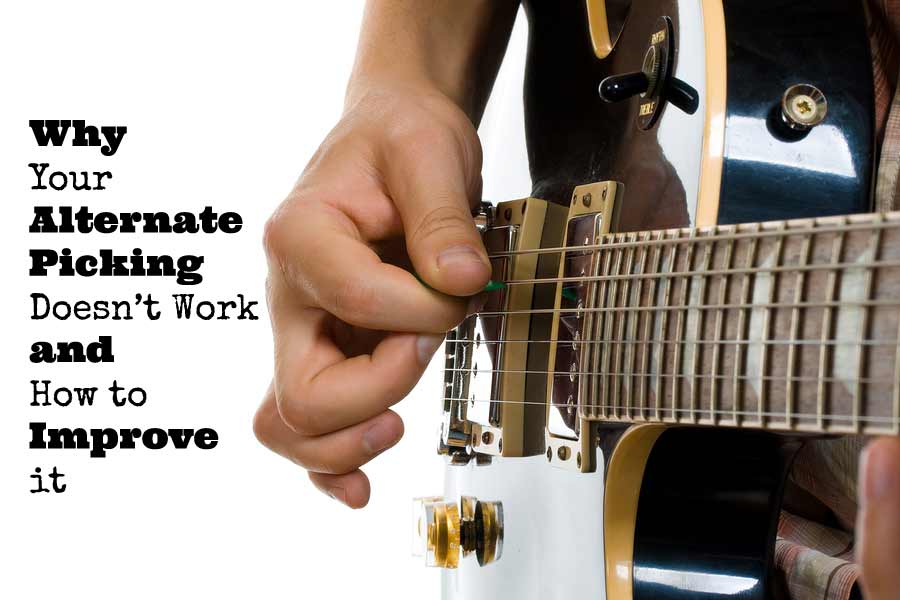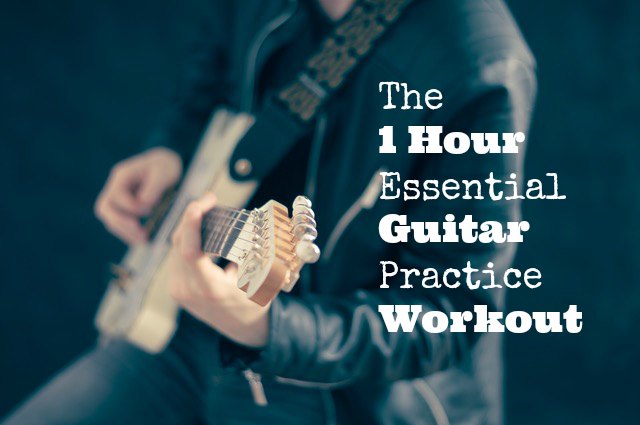Somewhere down the road in your guitar learning journey there’s a chance your playing gets stuck in a rut. You might play the same things over and over and find it hard to get out of that vicious circle. You need a boost and get outside of that box. So how do you do that? How do you get passed that bridge and get to the next level?
Today we got 11 ways to get you out of that rut, juice up your skills and skyrocket your playing.
Let’s take off!
1 – Get the right tools for the job
First, make sure you’re playing the right guitar. Some musicians stick with a guitar just because…. But playing the right guitar is not to be underestimated. Your appreciation for a guitar is a personal thing. Your personality, your taste and style of playing needs to resonate with a guitar. That’s no bull. The way a guitar feels, sounds and fits is really important. The right guitar can motivate and boost your playing enormously.
We all have different preferences and specific needs for a particular guitar type (classical, acoustic or electric), body shape (Acoustic: Dreadnought, Grand Auditorium, Orchestra Model, Jumbo, etc. or Electric: Fender Stratocaster, Telecaster, Superstrat, Gibson Les Paul, Gibson SG, etc.), neck shape/width, string gauges, and so on. You need a guitar that feels right against your body, right in your arms, hands, fingers and one that fits your frame.
Adjusting the action of your guitar can also make a huge difference to your playing. “Action” is simply how close the strings are to the fretboard. A lower action can make your guitar a lot more comfortable and fun to play. Be careful, a very low action can cause fret buzz, so make sure it is done correctly.
If you’re playing electric guitar, your amp (with gain/distortion) is just as important as your guitar. Your sound and playability will fully depend on it. The sound of an amp is also very personal. The choice of your amp will depend of what style of music you’re playing, your preferences (distortion, effects, analog or digital) and whether it’s for practice, studio or stage use.

 If you are playing guitar for a certain time, surely you have tried to master alternate picking. This is a technique that a novice guitar player must learn in order to reach speed and the ability to play fast solos and melodic lines.
If you are playing guitar for a certain time, surely you have tried to master alternate picking. This is a technique that a novice guitar player must learn in order to reach speed and the ability to play fast solos and melodic lines. Practicing with a metronome seems like a boring and useless thing to do, but the opposite is true. Practicing with a metronome will develop your ability to keep time and become a tight and solid guitar player. This is one thing that your really want to be good at if you’re aiming to becoming a good musician.
Practicing with a metronome seems like a boring and useless thing to do, but the opposite is true. Practicing with a metronome will develop your ability to keep time and become a tight and solid guitar player. This is one thing that your really want to be good at if you’re aiming to becoming a good musician.